Questions raised over Swiss handling of Chinese visit

Chinese President Xi Jinping ended his Swiss state visit on Wednesday amid tightly orchestrated visits to Lausanne and Geneva. With protestors banned and accredited media barred from covering his final speech, Swiss media were left wondering if Switzerland kowtowed to China.
In an unprecedented move, ahead of Xi’s visit to the United Nations’ Palais de Nations building in Geneva, 1,600 staff were asked to vacate the building by 2pm as meeting rooms were closed – including that of the Council of Human Rights. The UN said the decision was “logistical, not political” to prepare for the arrival of the 200-strong Chinese delegation and 800 evening guests.
While Tibetan protestors had been allowed to demonstrate in Bern and Geneva on the days before he arrived, no protestors were permitted in front of the UN on Wednesday. Police swiftly ended a small pro-Tibetan protest on the square as they unfurled a Tibetan flag and signs reading “Arrest Xitler, Free Tibet”. Around 100-200 pro-China supporters showed up in Geneva in an authorised gathering.
Fin de la manif pro #TibetExternal link après une minute pic.twitter.com/IMVvH1GfTjExternal link
— Koller Frédéric (@frederickoller) January 18, 2017External link
When probed by the press on the circumstances surrounding the Chinese visit, new UN chief Antonio Guterres responded: “Too often there are double standards when it comes to human rights when, on the one hand China is criticised, and on the other hand, borders are closed to refugees.”
He described China’s stance on multilateralism was “very clear” and an “extremely positive factor”. “The fact that we don’t agree on everything doesn’t diminish the importance of the Chinese position on this.”
Multilateralism was one of the key messages Xi delivered during the visit to Switzerland. In Wednesday night’s speech to special guests, including the UN General Assembly President Peter Thomson, he spoke of the Chinese support for multilateralism in order to achieve a peace and security “as yet unattainable”. He called for a “total” ban on nuclear arms and stockpiles, and rejected “the dominance of one or several countries” on the international scene, promising a “new mode of relations” with the US under Donald Trump.

Looking back on the visit, the Neue Zürcher Zeitung newspaper said Beijing had used the trip to position itself globally and as a way of gaining media attention. It described Xi’s visits to the World Health Organization (WHO) and the United Nations in Geneva and the International Olympic Committee in Lausanne as “symbolic”. Beijing is the 2022 host of the Winter Olympics and at the WHO, Xi’s wife Peng Liyuan received an award for her role in the fight against AIDS.
“The message of these stopovers was, ‘We are part of the international community and we participate in these institutions, even if they have to be reformed because of the shifts in world politics’.”
Le Tribune de Genève meanwhile called Xi the “master of International Geneva” and the Le Temps newspaper asked: “Isn’t it paradoxical that the leader of a communist dictatorship can suddenly incarnate the best guarantees of a world order based on universal values so often criticised by China?”
“The Swiss, cantonal and UN authorities yielded to the demands of a very demanding guest when it comes to security,” the paper continued. “Rarely, if ever, have the Swiss seen such a deployment of forces for the arrival of a foreign head of state. Under Chinese pressure, the restrictions on protests jeopardised the norms of a democratic state. Despite the promises of the Chinese foreign minister, the refusal of any direct contact with the press with the Chinese leader set an unfortunate precedent.”
Swiss Foreign Minister Didier Burkhalter responded to concerns over the lack of press access, saying it was “annoying” but arguing that Switzerland had not kowtowed to the Chinese delegation. Switzerland encouraged Beijing to accept a visit by the UN High Commissioner for Human Rights, Zeid Ra’ad Al Hussein.

More
Not all issues were on agenda for Chinese visit
Discussions with Geneva and Vaud cantonal authorities covered strengthening International Geneva and the arrival of Chinese banks in the city.
The head of the Geneva cantonal senate, François Longchamp, had a positive reaction to the visit after joining the Chinese leader on a train between Lausanne and Geneva. “Xi Jinping spoke very enthusiastically about Geneva and its international organisations, all the while recognising that the influence of our city on multilateralism is inversely proportional to its size.”
Before leaving Switzerland, Xi invited Swiss President Doris Leuthard to visit Beijing in May.

In compliance with the JTI standards
More: SWI swissinfo.ch certified by the Journalism Trust Initiative








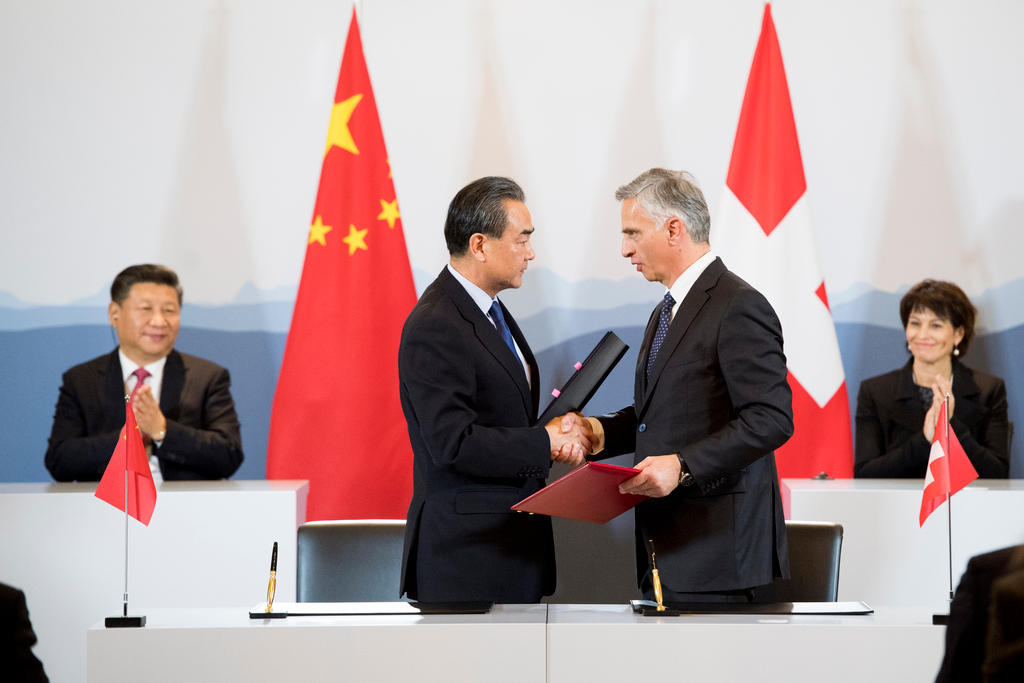
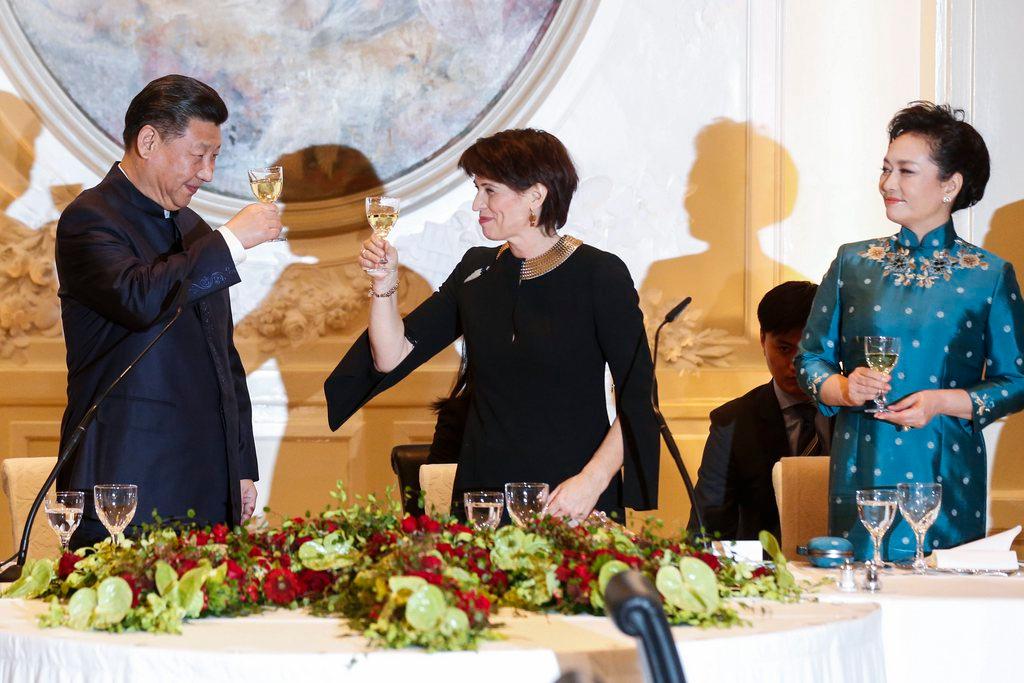
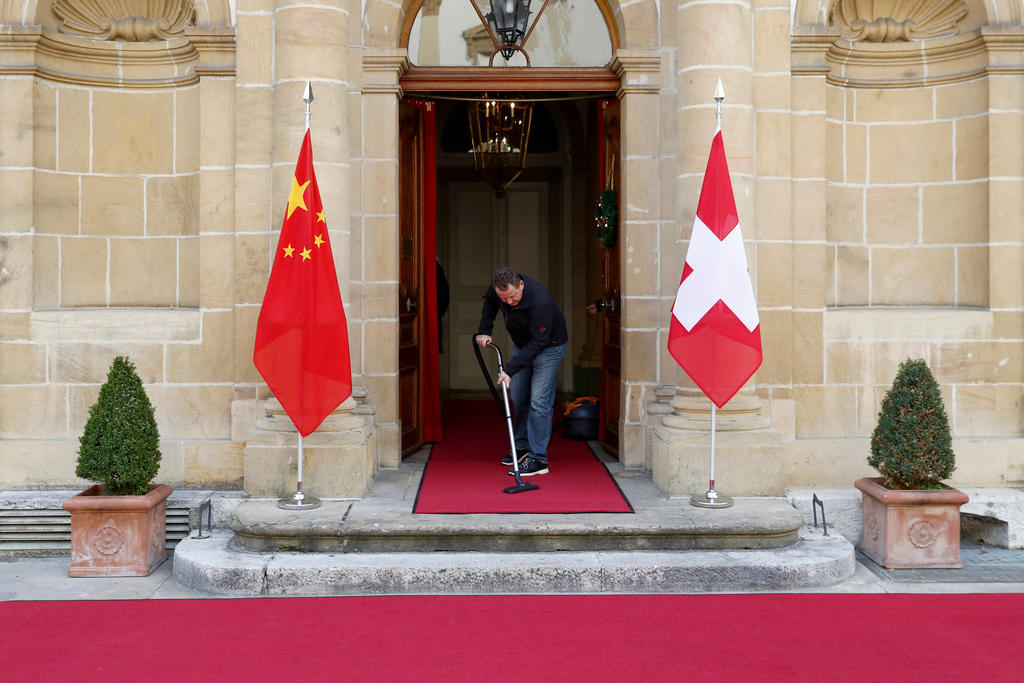
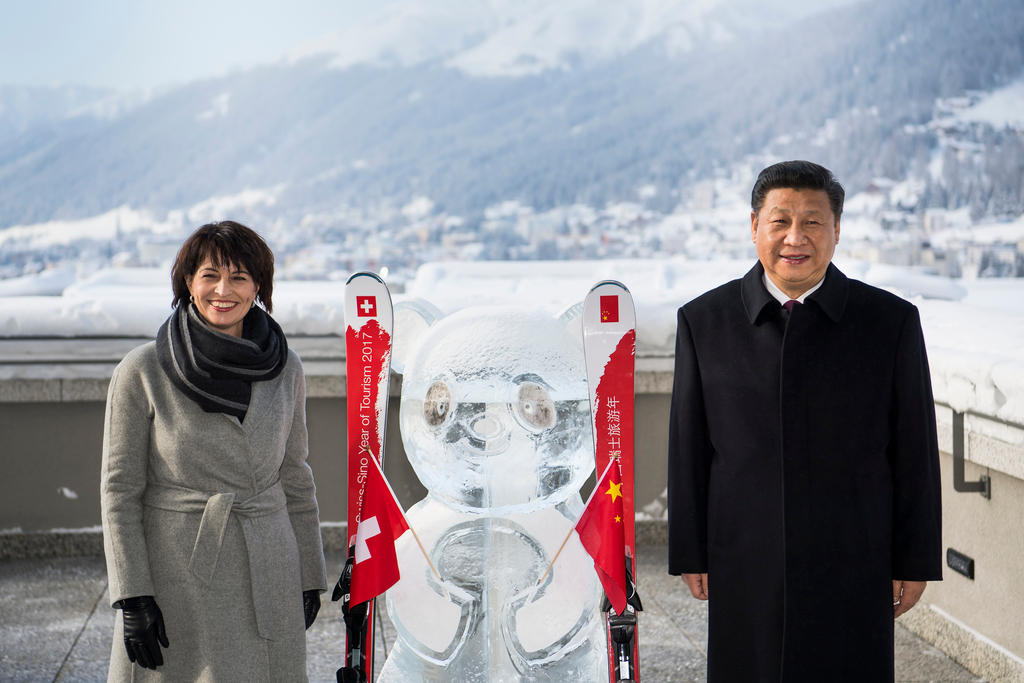

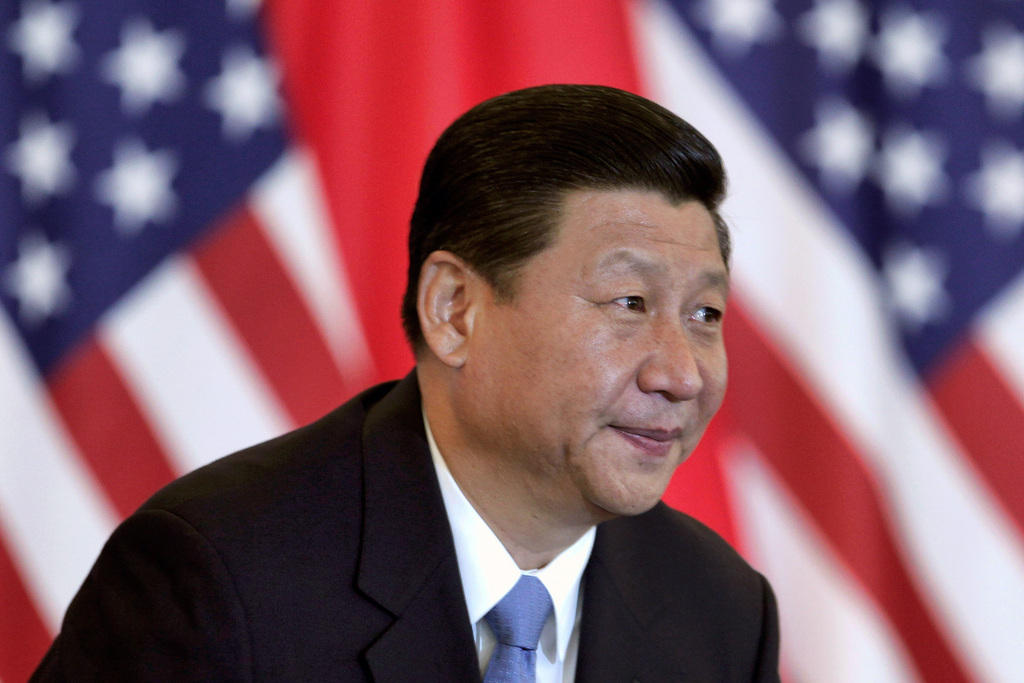

You can find an overview of ongoing debates with our journalists here . Please join us!
If you want to start a conversation about a topic raised in this article or want to report factual errors, email us at english@swissinfo.ch.